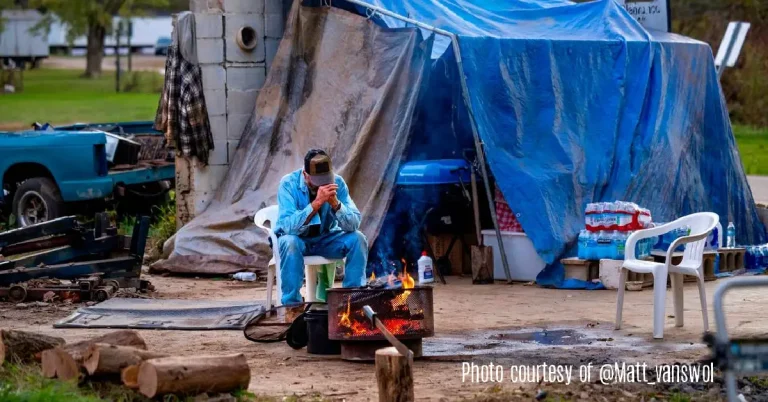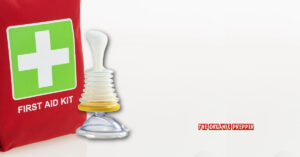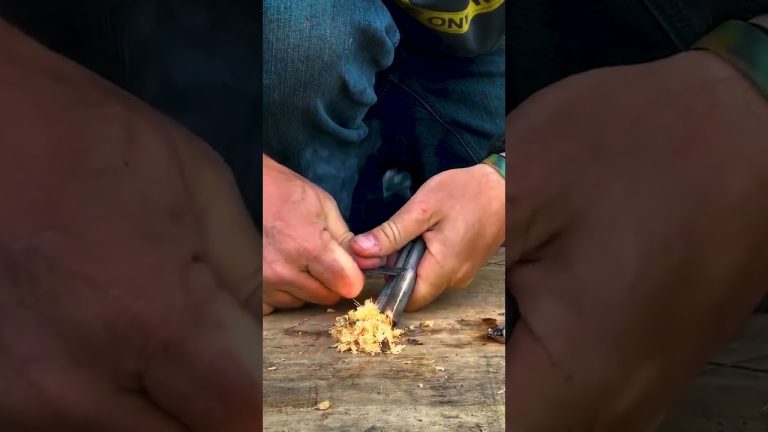Estimated reading time: 9 minutes
I once shared an article on Facebook about the potential for an economic collapse in the near future, and someone left a comment saying, “Why do I keep hearing this warning over and over for years, and yet nothing ever happens?” Good question. When people keep saying that the sky is falling and it never does, it’s hard not to be skeptical.
As I said in my response to him, “After the stock market crash in 2008, everyone started claiming an economic collapse was about to happen, but what they didn’t realize is that it DID happen… in 2008. Since then, the economy has slowly been recovering. But the systemic problems that led to the crash were never corrected, and the bubble has been re-inflating. It can’t re-inflate forever.”
To stop the economy from completely collapsing into chaos, the Federal Reserve had to print huge sums of money to prop up Wall Street. Then they had to do it again during the Covid recession. But every time they do this, they print even more money than before, and the bubble re-inflates and gets even bigger. The larger it gets, the larger the next crash will be.
Eventually, we’ll get to a point where the Federal Reserve can’t save the economy. They won’t be able to keep printing money because it causes too much inflation. But they won’t be able to raise interest rates because it causes the economy to grind to a halt. Basically, they’ve painted themselves into a corner.
We are currently in the mother of all financial bubbles. I believe the next depression (they’ll call it a recession) will begin within the next few years. Something will spook the markets, and even the Fed won’t be able to stop the economy from melting down.
All this is why I believe it’s more important than ever to prepare for a financial collapse, so in this article I’m going to cover 17 things you should do before that happens, starting with the most obvious ones.
Want to save this post for later? Click Here to Pin It On Pinterest!
1. Stockpile the Necessities
Having some extra food and water is a good idea in general, particularly if you live in an area where inclement weather can affect your daily life. To prepare for an economic collapse, however, you’ll need to have months of rations on hand.
Stockpile enough food, at a minimum, to survive a season without any incoming produce grown yourself. Store enough water for several months’ use and make sure you have multiple ways to purify future water supplies.
Also, stockpile plenty of medical supplies as doctors may be in short supply after a major collapse. Another thing that may be in short supply is electricity. Get all the things you’d need for a power outage, including ways to cook food and keep warm (or cool if it’s summertime). And don’t forget home security measures.
Desperate times means desperate people.
2. Build Some Bug Out Bags
Depending on the severity of the collapse, your town or city might become so dangerous that you have no choice but to leave it and head for a bug out location. But first, you’ll want to put together bug out bags for yourself and your family. You could even make bug out bags for your pets.
You should also consider getting a good bug out vehicle. If all you have is a small car, then you’ll have a hard time getting where you need to go.
3. Grow Your Own Food
Unless you have an underground vault the size of the Sistine Chapel in your backyard, you probably won’t be able to stockpile a lifetime of food for you and your loved ones. A more sustainable option is to grow your own food.
Growing your own food takes quite a bit of trial and error to reach a point where you can live off your own produce, which is all the more reason to start sooner rather than later.
4. Create Your Own Electricity or Learn to Live Without
In the event of an economic collapse, being dependent on the power grid is not the best situation to be in. The more you rely on electricity to accomplish your daily tasks, the more you’ll be behind when the power goes out. Solve this problem by learning to do as many daily activities without electricity as possible.
For example, start using kitchen gadgets and off grid lights that work without power. Combine this with a portable generator for the essentials and you’ll be self-reliant and comfortable.
5. Keep Cash on Hand
If the market tanks, you may still have some time to buy your way out of a sticky situation before inflation hits or the economy collapses altogether. Keep a hefty sum of cash on hand at all times so that you can make an emergency purchase without having to take a trip to the bank.
You never know when you might have to use it, especially if the electricity is out and no credit card transactions are possible.
When other currencies lose their value, you can trust that gold and silver will still be viable for making purchases in a disaster scenario. In fact, when inflation hits, the price of gold and silver goes up tremendously because these precious metals keep their value despite economic changes.
Be sure to have them in a form that is easily tradable, like coins, rather than in a larger form such as bars.
7. Stock Up on Barter Items
I know, I know, I’ve mentioned cash, precious metals, and barter items now. So you’re probably wondering, which one should I get? Well, all three, if possible. In a deflationary collapse, you’ll want cash. In an inflationary collapse, you’ll want precious metals.
And in a total collapse, you’ll want barter items. Try to have a little bit of each so you’re prepared for every possibility.
8. Get Out of Debt
Once you’ve acquired at least a little bit of cash, precious metals, and barter items, it’s time to start getting out of debt. If the economic crisis isn’t catastrophic (i.e. society’s infrastructure is left intact), you’ll want to make your money go as far as possible.
To that end, get out of debt as fast as you can! You want to be able to respond to a rapid change in the economy as quickly as possible. If inflation hits, you lose your home, or scarcity becomes a real problem, you don’t want to owe your creditors the money you need to survive. To do that…
9. Lower Monthly Bills / Spend Less
In the same vein as paying off debts, lower your bills and try to spend less at the store, so you can spend your money on more important things. Having a monetary obligation to too many places can be a serious drawback in the event of a crisis.
Great ways to lower monthly bills are mentioned earlier: grow your own food, provide your own electricity, and pay off your debts.
10. Create an Emergency Fund
After you’ve gotten out of debt, create an emergency fund that will allow you to handle anything that comes up during a disaster. If the economy is in crisis but stable enough that your money still has value, having 3-6 months’ expenses saved can go a long way toward keeping you out of crisis mode yourself.
To do this, start learning new ways to save money.
11. Learn to Eat Healthy and Exercise Right
Getting in the habit of eating right and exercising is very important for preparing yourself for a survival situation. When the economy collapses, chances are you’ll be burning a lot more calories simply trying to survive than you normally do.
Similarly, knowing the proper fuel to put in your body will pay off later when you’re having to work to stay full.
12. Learn Self Defense
The best time to learn how to defend yourself is now. Start with firearms training and become proficient with rifles, shotguns, and pistols. You may need them to protect yourself, others, and to hunt with. Stockpile ammunition as well, preparing for a shortage or a time when you won’t be able to purchase or find any.
13. Beef Up Your Home Security
After an economic collapse, there are going to be a lot of desperate people out there who won’t think twice about breaking into your home and taking your supplies so they can feed their families.
Don’t make it easy for them. Reinforce your doors and windows, set up hobo alarms so they don’t catch you off guard, put up solar-powered motion lights to try and deter them, and get some guns and ammo in case they manage to break into your house.
14. Expand Your Skill Set
In times of economic turmoil, traditional job markets can become unstable. It’s essential to have a diverse set of skills that can be useful in various scenarios. Learn basic carpentry, plumbing, or mechanical repair skills.
These skills not only make you more self-reliant but could also provide a source of income or barter in a collapsed economy. Additionally, consider acquiring skills in first aid and basic medical care, as access to healthcare might be limited.
15. Establish a Strong Community Network
In difficult times, having a supportive community can make a significant difference. Build relationships with your neighbors and local community members. Consider forming or joining a mutual aid group where skills, resources, and responsibilities can be shared. In a major economic collapse, a strong community network can provide collective security, share food resources, and offer emotional support.
16. Preserve and Store Seeds
In addition to growing your own food, it’s crucial to think about long-term food sustainability. Learn about seed saving and storage techniques. Preserving a diverse variety of seeds ensures that you can continue to grow food even if commercial seeds become unavailable or unaffordable. Focus on heirloom varieties, as they are often more resilient and better adapted to local growing conditions.
17. Develop Alternative Communication Methods
In a severe economic collapse, conventional communication networks might be disrupted or overloaded. Prepare alternative ways to communicate with your family and community. This could include having a hand-crank or solar-powered radio, learning how to use a ham radio, or establishing a system of signals or messengers for local communication. It’s important to have a plan for staying informed and connected, especially in times of crisis.
Like this post? Don’t Forget to Pin It On Pinterest!


















